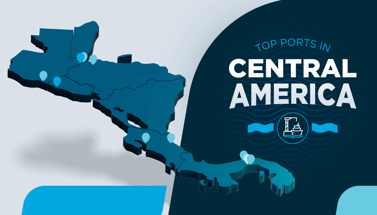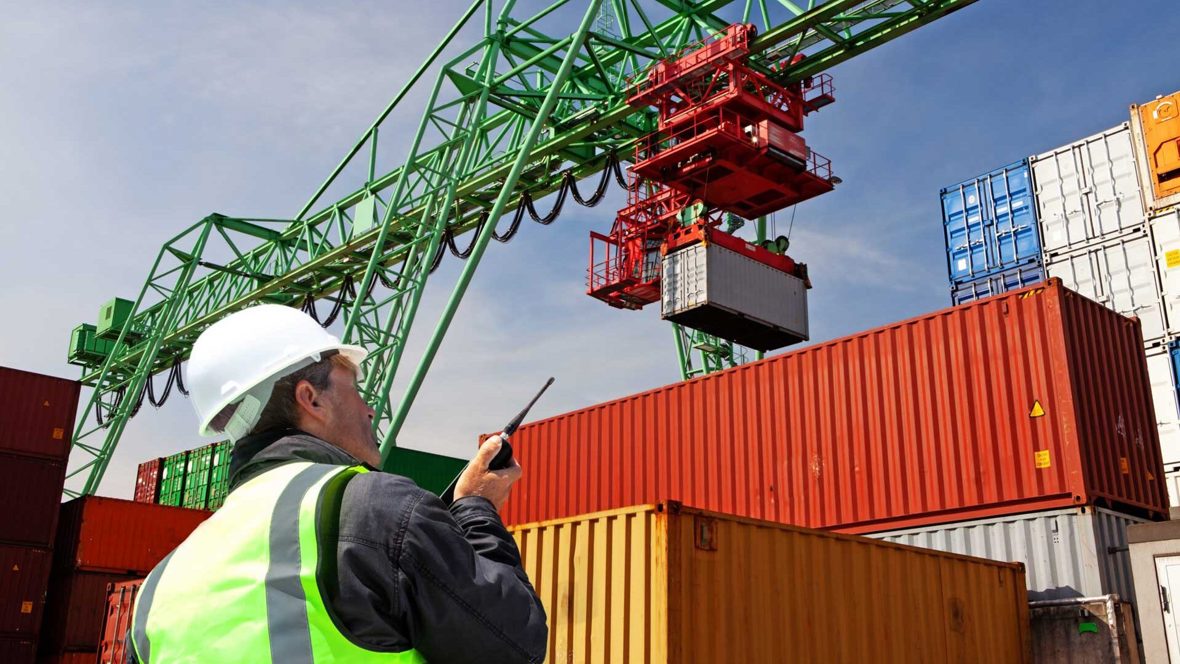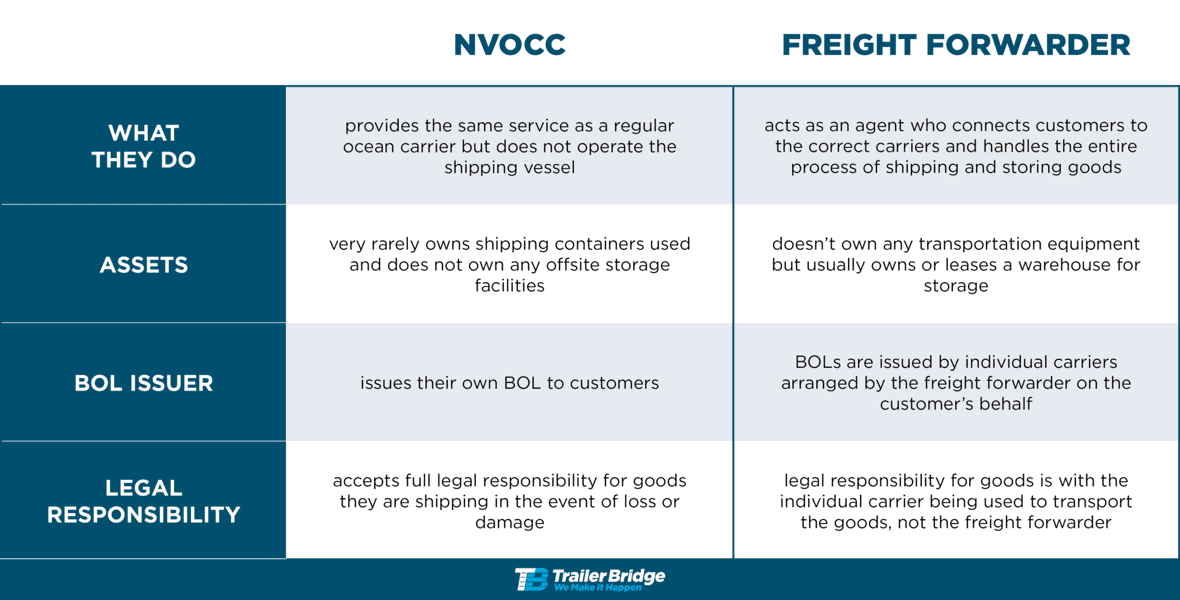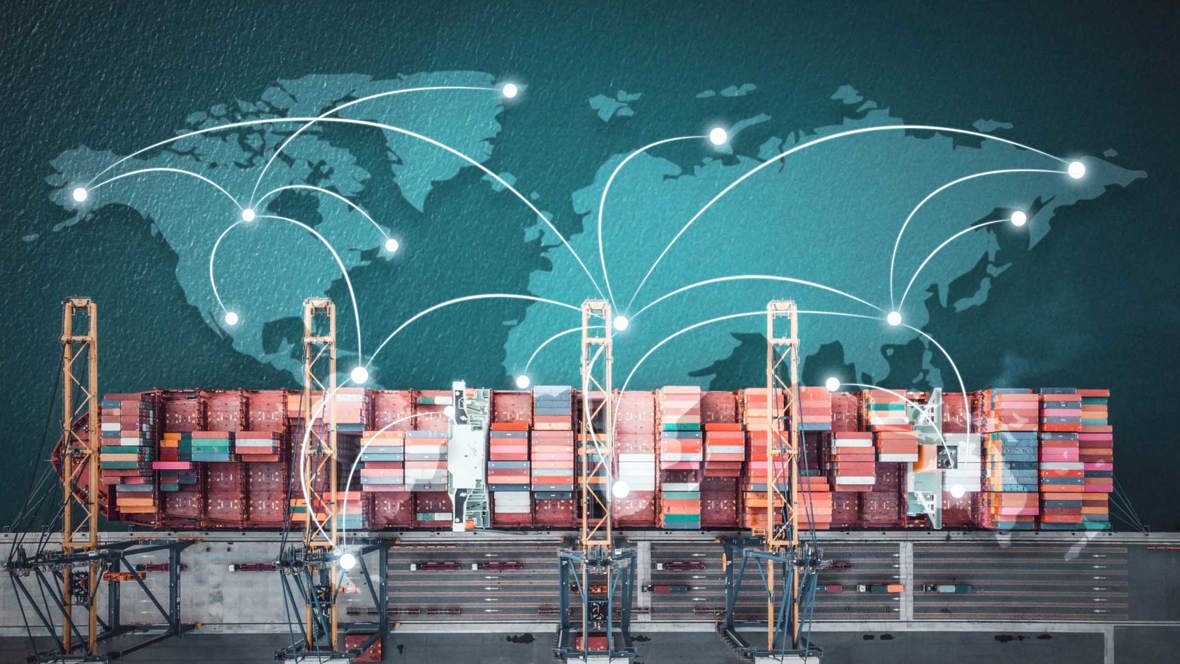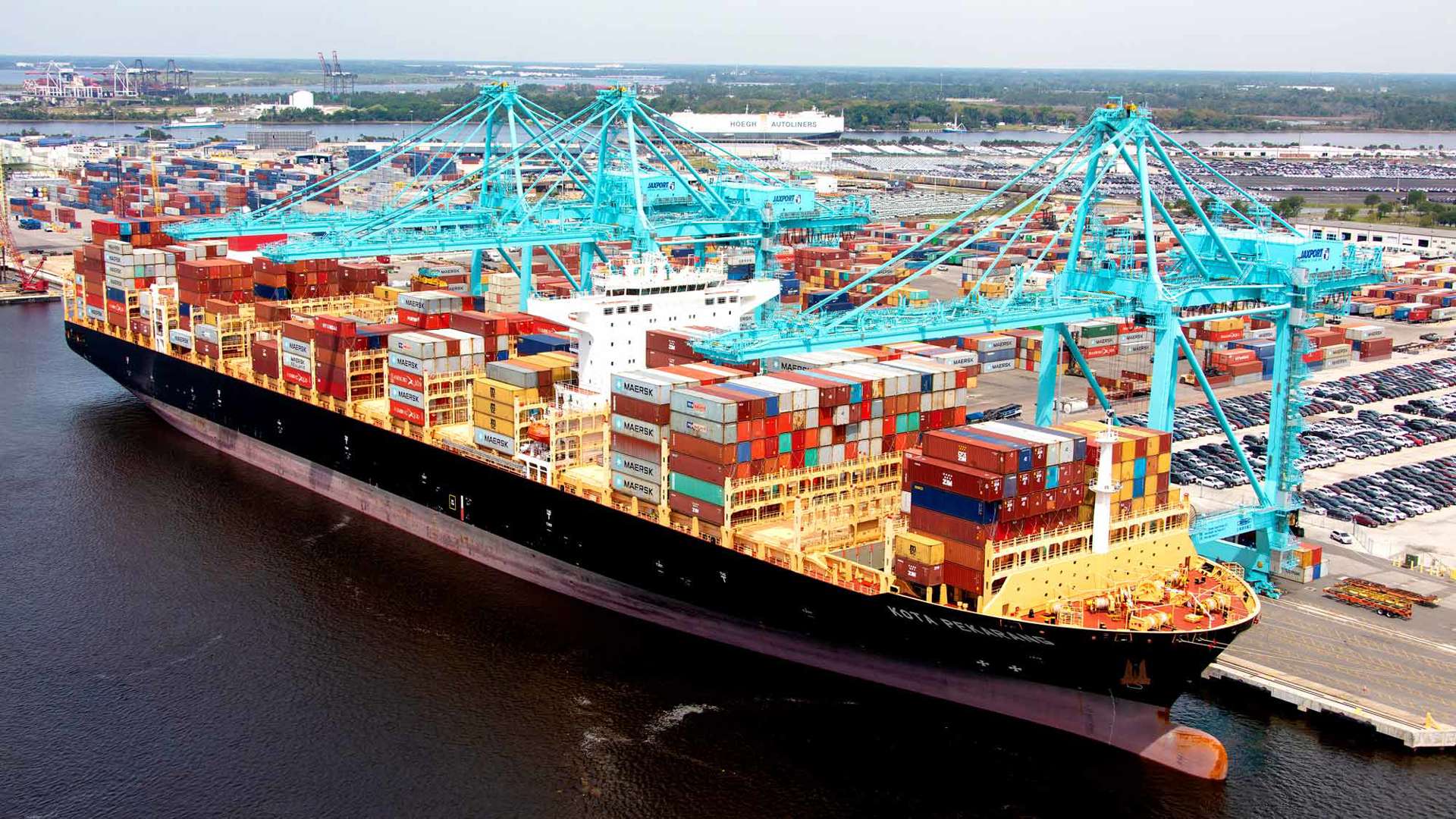
What's the Difference Between a Freight Forwarder & NVOCC?
If you are looking for a third-party logistics (3PL) provider in and around the U.S., you may have come across these two terms: NVOCC and freight forwarders.
You’re not alone if you are struggling to differentiate between NVOCC and freight forwarding and trying to figure out just which one would be best for your business needs. Generally, there is much confusion surrounding these two types of operations – even within the shipping industry itself.
Because the Federal Maritime Commission (FMC) classifies both NVOCCs and freight forwarders as Ocean Transport Intermediaries (OTIs), it can get a little complicated. What this means is that they are both typically involved in ensuring the safe and timely transportation and storage of items for their customers. This includes handling the necessary filings, paperwork, and Customs clearances, as well as tracking the goods as they are moved.
The way they differ from standard shipping companies is that neither NVOCCs nor freight forwarders traditionally own or operate their own assets. They are essentially two different types of cargo consolidators, working as middlemen between smaller companies who want reliable shipping at reasonable rates and carriers who often don’t like dealing with low volume shippers.
What is an NVOCC?
NVOCC vs. Freight Forwarder: What’s the difference?
While the labels NVOCC and freight forwarder are often used interchangeably within the shipping industry because of their equal status as OTIs, there are actually a number of key functional and legal differences between the two.
Why use a Freight Forwarder?
As freight forwarders handle every detail of the movement of goods, from shipping to storage and even the documentation, they are a great option for individuals and companies who are not familiar with the rules and requirements of shipping.
Unlike many NVOCCs, they can arrange for intermodal transportation for both international and domestic movement of goods. In this way, they can make the import/export process a lot simpler.
An added bonus of working with a freight forwarder is that contrary to most situations, in this instance, having a middleman is likely to net you the best price.
Freight forwarders establish close relationships with a multitude of carriers and even use NVOCCs themselves sometimes. This often means that they get access to exclusive prices that their clients can then benefit from. This is especially the case for individuals and small companies who would otherwise be required to pay premium rates for their low volume of containers.
Related Articles


